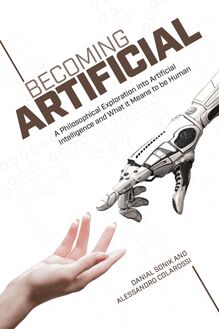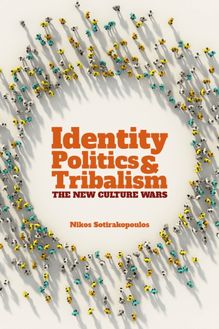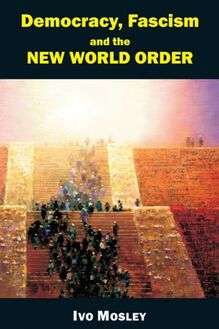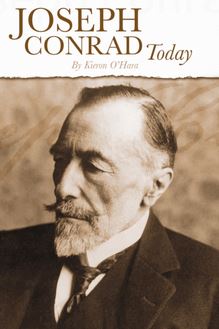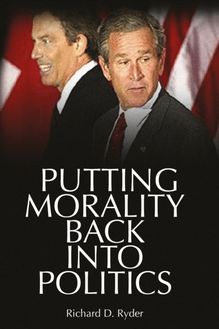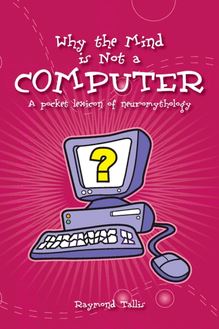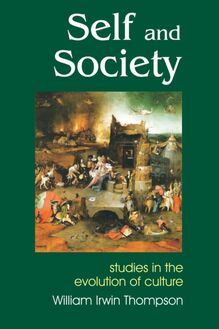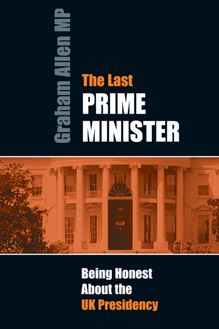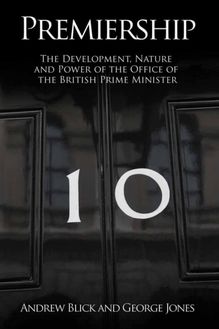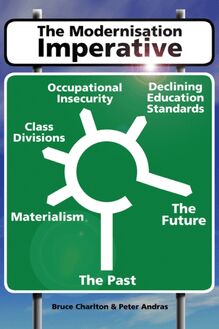-
 Univers
Univers
-
 Ebooks
Ebooks
-
 Livres audio
Livres audio
-
 Presse
Presse
-
 Podcasts
Podcasts
-
 BD
BD
-
 Documents
Documents
-
- Cours
- Révisions
- Ressources pédagogiques
- Sciences de l’éducation
- Manuels scolaires
- Langues
- Travaux de classe
- Annales de BEP
- Etudes supérieures
- Maternelle et primaire
- Fiches de lecture
- Orientation scolaire
- Méthodologie
- Corrigés de devoir
- Annales d’examens et concours
- Annales du bac
- Annales du brevet
- Rapports de stage
La lecture à portée de main
Vous pourrez modifier la taille du texte de cet ouvrage
Découvre YouScribe en t'inscrivant gratuitement
Je m'inscrisDécouvre YouScribe en t'inscrivant gratuitement
Je m'inscrisEn savoir plus
Vous pourrez modifier la taille du texte de cet ouvrage
En savoir plus

Description
Sujets
Informations
| Publié par | Andrews UK |
| Date de parution | 16 août 2016 |
| Nombre de lectures | 0 |
| EAN13 | 9781845406462 |
| Langue | English |
Informations légales : prix de location à la page 0,0324€. Cette information est donnée uniquement à titre indicatif conformément à la législation en vigueur.
Extrait
Title page
Premiership
The Development, Nature and Power of the British Prime Minister
Andrew Blick and George Jones
SOCIETAS
essays in political
& cultural criticism
imprint-academc.com
Publisher information
2016 digital version converted and published by
Andrews UK Limited
www.andrewsuk.com
Copyright © 2010, 2016 Andrew Blick and George Jones
The moral rights of the authors have been asserted.
No part of any contribution may be reproduced in any form without permission, except for the quotation of brief passages in criticism and discussion.
Imprint Academic, PO Box 200, Exeter EX5 5YX, UK
Authors’ Acknowledgements
The authors wish to thank Professor Peter Hennessy, Professor Paul Langford, Professor Kevin Theakston and Dr. Mark Bennister for their comments and advice on our work. All conclusions and errors of fact and omission are our own. We would also like to thank Anthony Freeman and Keith Sutherland at Imprint Academic; and Nicola and George Blick, and Diana Jones.
About the authors
Dr. Andrew Blick is Senior Research Fellow, Democratic Audit. During 1999 he worked in the Prime Minister’s Office, No.10 Downing Sreet. His other works include two books: People Who Live in the Dark: the history of the special adviser in British politics (London: Politico’s, 2004); and How to go to War: a handbook for democratic leaders (London: Politico’s, 2005). His current research interests include Parliament, the Civil Service and possible federal structures for the UK.
Professor George Jones has from 2003 been Emeritus Professor of Government at LSE where he was Professor of Government between 1976 and 2003. Since 2003 he has also been Honorary Professor at the University of Birmingham and Visiting Professor at Queen Mary, London. Harold Wilson once remarked of him that he ‘really has got the feel of what No.10 is about’ and that he had a ‘perceptive understanding of the prime minister’s dual political and administrative role’. He has authored, co-authored and edited a number of books, chapters and articles on British central and local government, including the acclaimed biography of Herbert Morrison: B. Donoughue and G.W. Jones, Herbert Morrison: Portrait of a Politician (London Weidenfeld and Nicolson, 1973) and (London: Phoenix Press, 2001). He has written about advising the Prime Minister and Cabinet in recent times in J.M. Lee, G.W. Jones and J. Burnham, At the Centre of Whitehall (Basingstoke: Macmillan, 1998); and a study of prime ministers in G.W. Jones (ed.), West European Prime Ministers (London: Frank Cass, 1991), as well as numerous chapters and articles about prime ministers and the Cabinet. He wrote the first study of the private secretaries of prime ministers in G.W. Jones, ‘The Prime Ministers’ Secretaries: Politicians or Administrators?’ in J.G. Griffith (ed.), From Politics to Administration (London: Allen and Unwin, 1975).
Introduction
Uncovering the ‘Mysteries or Secrets’ of the Premiership
‘There are certain Mysteries or Secrets in all Trades from the highest to the lowest, from that of Prime Ministring to this of Authoring , which are seldom discovered, unless to Members of the same Calling’. [1] These words, written by Henry Fielding, first appeared in print in February 1742. The previous month had seen the forced, final exit from government of Robert Walpole, the politician traditionally regarded as the first British premier, of whose ascendancy Fielding had been a prominent critic. Since the eighteenth century the office Walpole helped establish has undergone substantial changes and transformations - but the observation made about it by Fielding still resonates.
The reference to ‘ Prime Ministring ’ as the ‘highest’ of ‘Trades’ was laced with irony. Walpole was often portrayed by contemporary satirists as a corrupt scoundrel hiding behind a façade of respectability. The term ‘Prime Minister’ was at the time more one of abuse directed at a person than a description of an office, since such a body, which was not yet institutionally entrenched, was regarded as constitutionally illegitimate. [2] Nonetheless Fielding was at the same time rightly acknowledging that the role performed by Walpole was important, as head of an embryonic institution lying at the apex of the political system. It has retained this prominence until now - and is universally accepted as doing so, whatever the particular interpretations placed upon it. An understanding of the premiership is vital to those who are or seek to be within government, or wish to observe its operation from the outside.
But the subject of the office of the British Prime Minister presents difficulties to those seeking to analyse it, not least because the formal basis for its existence, though greater than it was in the time of Fielding and Walpole, remains slender. Discourse about this institution suffers from both the overlooking of crucial evidence and the application of inadequate analysis. As a consequence, the premiership remains an institution surrounded by ‘Mysteries or Secrets’. The purpose of the present work is to dispel them.
The application of history
This book draws upon methods from two academic fields. The first is that of history. Interpretations of the premiership often involve consideration of the extent to which it has changed over time. Some have argued that the 1997–2007 tenure of Tony Blair saw a transformation in the way the office operated. In their biography of Alastair Campbell, the media aide to Blair, Peter Oborne and Simon Walters referred to Blair’s ‘attempt to govern Britain in an entirely different and new way’; [3] and Christopher Foster described ‘Blair’s replacement of Cabinet by prime ministerial government’. [4] In 2002 Blair himself used an historical reference to make the opposite case. When asked about his establishment of units in the Cabinet Office answering directly to him, he noted: ‘I would say it is in the tradition of what Governments and Prime Ministers have done over a long period of time ... These things will come up from time to time ... I do not think we should see that as some great constitutional innovation’. [5]
If such views are to be tested then a discipline concerned with the systematic study of how events have played out over time is invaluable. Accordingly, notable additions have recently been made to the debate over changes to the office of Prime Minister by two historians, Paul Langford [6] and Peter Hennessy. [7] While Professor Langford looks forward from the eighteenth century, Professor Hennessy faces back from the twentieth and twenty first. In this work both perspectives are taken into account.
The historical discipline enables a comparison between events and trends in different periods and the discernment of underlying tendencies and patterns. As well as a thorough assessment of the development of the premiership, it makes possible consideration of how it has been interpreted at different times. When portrayals of the premiership from various eras are considered alongside each-other, significant similarities and contradictions can be revealed.
Potentially of use both to the critical assessment of existing theses about the office of Prime Minister and the development of new interpretations is the emphasis placed in historical method on the exhaustive and scrupulous analysis of sources. It can be applied to the gathering and processing of data from any period, from the distant to the contemporary. The need for a careful scouring of the evidence arises partly because of the long tradition for UK constitutional arrangements to be defined by deeds and the often loose conventions surrounding them, and not to be strictly codified: tendencies exceptionally strong for the premiership. Given the importance of actions to its composition it is apt that the Fielding passage quoted above uses a verb - ‘ Prime Ministring ’, rather than a noun. No comprehensive official delineation of the office of prime minister has ever been publicly issued; and it is doubtful one exists internally within Whitehall. Relevant information exists in diffuse form. In 1841, when - on behalf of Prince Albert - Queen Victoria requested details about the premiership from the former premier Viscount Melbourne, he, displaying an impressive instinctive grasp of the task of the British constitutional historian, explained:
the work of conducting the executive government, has rested so much on practice, on usage, on understanding, that there is no publication to which reference can be made for the explanation and description of it. It is to be sought in debates, protests, in letters, in memoirs, and wherever it can be picked up. [8]
One means developed for this work for uncovering the discrete development of British governance is through the technique called here ‘constitutional etymology’. It involves tracing the usage of particular words and phrases. Like any other technique it has limitations, including being subject to potential technological fallibility and the possibility that different words may have been used to convey the same or a similar meaning. But it is useful in uncovering indicators of changing practices and perceptions. The availability of electronic databases - including the Times Digital Archive , covering the period 1785–1985 (thereafter it is stored elsewhere); the British Library and National Archives on-line catalogues; and an historic Hansard search engine extending back to 180 - makes such an approach increasingly fruitful. In the chapters that follow, constitutional etymology is applied to words and phrases related to the premiership, No.10 staff, and Cabinet government.
There is also an attempt to identify and gather quantitative data that have a bearing on the nature of the office of Prime
-
 Univers
Univers
-
 Ebooks
Ebooks
-
 Livres audio
Livres audio
-
 Presse
Presse
-
 Podcasts
Podcasts
-
 BD
BD
-
 Documents
Documents
-
Jeunesse
-
Littérature
-
Ressources professionnelles
-
Santé et bien-être
-
Savoirs
-
Education
-
Loisirs et hobbies
-
Art, musique et cinéma
-
Actualité et débat de société
-
Jeunesse
-
Littérature
-
Ressources professionnelles
-
Santé et bien-être
-
Savoirs
-
Education
-
Loisirs et hobbies
-
Art, musique et cinéma
-
Actualité et débat de société
-
Actualités
-
Lifestyle
-
Presse jeunesse
-
Presse professionnelle
-
Pratique
-
Presse sportive
-
Presse internationale
-
Culture & Médias
-
Action et Aventures
-
Science-fiction et Fantasy
-
Société
-
Jeunesse
-
Littérature
-
Ressources professionnelles
-
Santé et bien-être
-
Savoirs
-
Education
-
Loisirs et hobbies
-
Art, musique et cinéma
-
Actualité et débat de société
- Cours
- Révisions
- Ressources pédagogiques
- Sciences de l’éducation
- Manuels scolaires
- Langues
- Travaux de classe
- Annales de BEP
- Etudes supérieures
- Maternelle et primaire
- Fiches de lecture
- Orientation scolaire
- Méthodologie
- Corrigés de devoir
- Annales d’examens et concours
- Annales du bac
- Annales du brevet
- Rapports de stage

